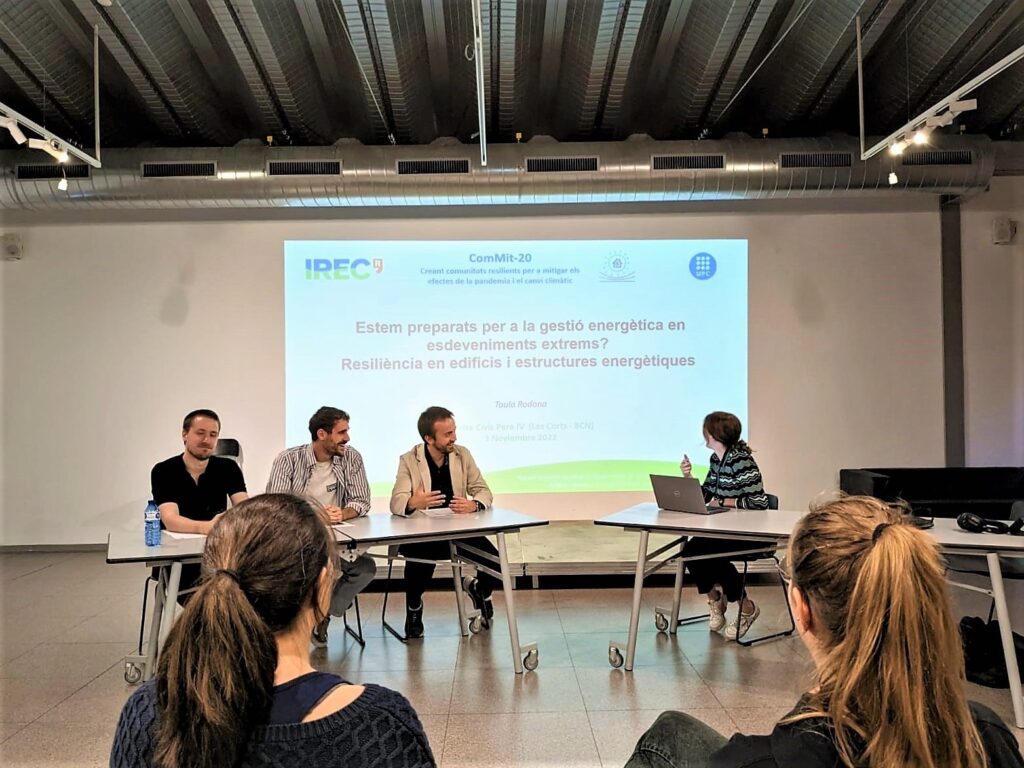The project ComMit-20 aimed to establish the long and short-term impacts of the COVID-19 pandemic situation regarding energy consumption, changes in usage patterns, and higher indoor environmental quality requirements in the built environment. The objective was to propose adaptive-oriented measures for policies and recommendations to increase the resilience of buildings and urban communities.
Researchers followed two contemporary approaches to navigate through the project. On the one hand, the deep, systematic, and accurate analysis of energy and water consumption patterns has been a crucial step. Key data sources were already identified in the proposal stage and have been used together with others obtained by the support gathered from different institutions and companies which have considered sharing data. On the other hand, the robustness of potential solutions to increase resilience has been based on the analysis of representative test use cases under different scenarios through expert simulation tools and monitored data analysis. Simulation tools give detailed results of energy consumption, IEQ, economic costs, and performance of the systems in situations that mimic pandemic periods (strict lockdown and flexible restrictions periods) and future climate conditions (flooding and heat waves).

The project’s next step will be integrating newfound requirements in design and energy planning tools as well as energy management systems. The operational recommendations are to be applied in future climate scenarios, including epidemic times, flooding, and heat waves. All these risk factors have been studied in different domains of the built environment and at different levels (single building and urban). Not only the residential sector has been considered, but also educational buildings and tertiary buildings with PV and Energy Management Systems.
The main results and conclusions of the project can be summarized in the following points:
- Detailed characterization of changes during pandemic periods which have been used to develop and adapt simulation codes for the generation of stochastic profiles (DHW and electric consumption), electricity forecasts in residential and simulation codes for educational buildings
- Characterization of CO2 emissions and primary energy of the electricity grid to generate penalty signals to activate flexibility in buildings as a mitigation and resilience measure
- Resilience indicators and risk assessment of urban electrical grid under extreme events
- Mitigation measures of residential building stock under extreme events and impact on the energy consumption
- Identification of the relationship between the occupation of space against the increase in the concentration of CO2 (and thus, risk of infection) that can be used to calculate the maximum occupation limits for the different classrooms in educational environments.
The project resulted in 13 publications in journals and international conferences, two of them currently under review.
The coordinator of ComMit-20 was Jaume Salom from IREC and involves all the research groups of the ECOS unit from IREC (Thermal Energy and Building Performance, Power Systems and Energy Systems Analytics research groups), as well as researchers from UPC (Group of Construction Research and Innovation – GRIC).
Acknowledgements (in Catalan)
L’Agència de Gestió d’Ajuts Universitaris i de Recerca (AGAUR) han atorgat una ajuda Pandèmies 2020 per aquest projecte “ComMit-20 – 2020PANDE00116” amb el suport de la Secretaria d’Universitats i Recerca del departament d’Empresa i Coneixement de la Generalitat de Catalunya.




